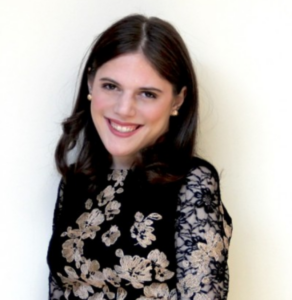I was unable to attend the March for Israel because there was no accessible transportation. This needs to change
Jews who need handicapped-accessible modes of transportation were largely unable to participate in this mass gathering

Demonstrators wear Israeli flags during a “March for Israel” rally on the National Mall in Washington, DC, US, on Tuesday, Nov. 14, 2023. Photo by Al Drago/Bloomberg via Getty Images
Participants told me that it was the largest gathering of Jews since Mount Sinai. And yet, I was unable to be there, on the National Mall in Washington, D.C., this past Tuesday at the March for Israel, the most historic gathering of Jewish people of this century.
I live in Teaneck, New Jersey, and consider myself to be an engaged member of Teaneck’s Jewish community. I regularly participate in communal activities such as shiurim and am a board member of my shul, Congregation Beth Aaron.
I also use a motorized wheelchair. I wound up being excluded from the rally because of my mobility requirements, and I’m sure that I’m not the only one. Our needs were not considered important enough to address.
My motorized chair is not usually a barrier to leading a rich and fulfilling Jewish life. However, I was terribly disappointed that despite being an ardent Zionist and supporter of Israel, I was unable to attend the D.C. Israel rally because there was no accessible transportation that could accommodate my needs.
The bus from my shul in Teaneck transported hundreds of people from my community, yet not me. None of the transportation could accommodate my motorized wheelchair because the rally was organized quickly, and because there are so few coach buses that have handicapped accessibility, it turned out to be impossible to secure one for our shul.
I asked numerous friends affiliated with other shuls and Jewish community centers in a variety of towns nearby if they knew of any available handicapped places on any buses, but was ultimately unsuccessful.
Under different circumstances, I would have organized my own transportation, but since the rally was making use of most available modes of transportation, it was impossible for me to organize my own suitable transportation, which would have been prohibitively expensive for me as an individual anyway.
I was so sad not to be there. It reminded me of those times when I was a child in grade school, and we talked about how sad it was that we had lost Jerusalem … except that I didn’t know what that felt like, because I had not yet been to Israel. I felt empty and fraudulent.
Because how could I miss something that I have never experienced?
I have a lot of friends and family in Israel, and I care deeply about the current conflict, so I felt that it would have been important for me to be there, in Washington, D.C., to show solidarity. Those of us Jews who need handicapped-accessible transportation also feel an immense sense of responsibility about the safety of our people and our land and want a seat at the communal table.
This is not a new problem, and there is still so much work to do to truly make our communities accessible to all. I have written about the issue of handicapped accessibility in the American Jewish community before, but I felt that I needed to do more than write and wait for others to solve my and others’ accessibility issues. I want to make the world a better place. I have recently started a 501(c)(3) organization called Pashut Solutions (pashut means “simple” in Hebrew) to address this issue because I think that the American Jewish community can do more to accommodate smart, intelligent, caring and committed people who happen to use a wheelchair. My goal is for Pashut Solutions to advocate for the people who must sit down — in their wheelchairs — but want full accessibility to participate in Jewish spaces and Jewish communal functions, including rallies.
Instead of joining my community at the rally, I stayed home in Teaneck. I recited a lot of Psalms and prayed for the soldiers. Yet it was incredibly isolating. I was missing out on a formative Jewish experience.
Perhaps I was not alone in my isolation. I heard of a busload of people from Detroit whose driver refused to take them from the airport to the rally. Many friends who are doctors, lawyers and teachers could not leave their jobs to attend. There are many reasons why those who might have wanted to participate could not attend the march. Yet accessibility should never be one of those reasons. A whole contingency of people were left out because of their physical challenges.
To truly be inclusive requires forethought and a little extra planning. My organization could have mobilized immediately to help organize accessible busing and to match those who needed such buses with locations where those buses were available. The accessibility challenge with the March for Israel lay solely with the mode of transportation, as once you arrive in the U.S. capital, the city is largely very accessible. The Capitol Building is accessible. In fact, most of the main government buildings in Washington, D.C., are accessible, because they are in compliance with the Americans with Disabilities Act. The metro in Washington, D.C., is also accessible (besting the New York City subway system, which is not entirely).
Our presence at the rally would have been a meaningful and important addition. I hope that next time Jews rally together, all advocates for Jewish causes who want to be there, will be.
To contact the author, email [email protected].




















